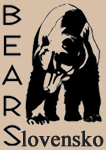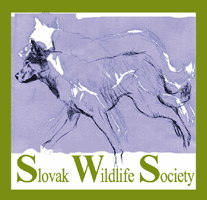

Holidaymakers, hotel staff and rural residents
Bears can become a problem if they get used to people or their food. Such individuals are called habituated or food-conditioned bears. This most often happens around mountain hotels or cottage areas but also in some villages near forest. Bears quickly get used to new sources of food that become available. Their sense of smell is better than that of most dogs and leads them to food or refuse from long distances. If they get food easily, they gradually learn to overcome their wariness of people and return. If nothing happens to them, they will start to visit the place regularly, losing their fear of people.
Smells from food and refuse, but also compost or waste water from cooking, are strong attractants for bears as well as other animals. That's why it is important to store them so that bears cannot get to them. For refuse, there are special containers, which bears cannot open. Normal containers can be shut in a garage or barred cage or protected with an electric fence. Containers should be emptied as often as possible, so that refuse does not build up and start to rot, because the smell will then be even more attractive to bears.
Likewise, abandoned or unmaintained orchards with their fruit trees are very attractive places for bears, mainly in autumn. The smell of ripe or rotting fruit can attract them right into human settlements. This can also be avoided, if fruit is picked as it ripens, any rotting fruit is cleared away or an electric fence can be used.
Seeing bear cubs feeding might seem like a nice experience, but the future is less optimistic. If they learn to seek food near human settlement, sooner or later this could lead to conflict. People have been injured by bears that got used to expecting food from people and lost their wariness. Such bears become a danger to people and are threatened with being shot or captured. A responsible approach and preventive measures protect people and bears. Never feed bears!



